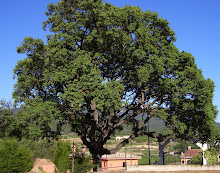from: Avui, October 11, 2009, p. 23
Spain will continue being the EU's leader in job destruction
Editorial office, Barcelona
At year's end, 3 of every ten new unemployed in the EU will be Spanish. According to the "labor euro-index," elaborated by IESE business school and temp-work agency Adecco, Spain will continue leading the job destruction, though it will be more moderate if compared to earlier trimesters. The report analyses the job market's evolution of seven European countries: Spain, France, Germany, Ital, Portugal, United Kingdom and Poland (similar to Spain in population). Taken together, these markets have registered three million people less in employment, double the number than in the three months before. "Never before in a twelve-months span our group of seven countries had destroyed so many jobs," the authors of the document stress. Germany is the country that has had a better evolution, while Spain's is the most "dramatic."
The future jobless rate
Spain has lost within a year 1,480,000 jobs, a fall of more than 7%. That means it has counted for nearly one in every two jobs lost in the EU during the past year. As to the unemployment rate, the study published by IESE and Adecco calculates that the European community rate will rise by 2.5%, as as to be at 10.3% at year's end. That means an increase of 3% in two years. If you took out Spain of this calculation, the increase would be smaller, 1.8%.
(The original in Catalan is as confusing as to numbers and semesters, trimester, years,... observed...)
A recent discovery: William Chislett on Spain
2 months ago






